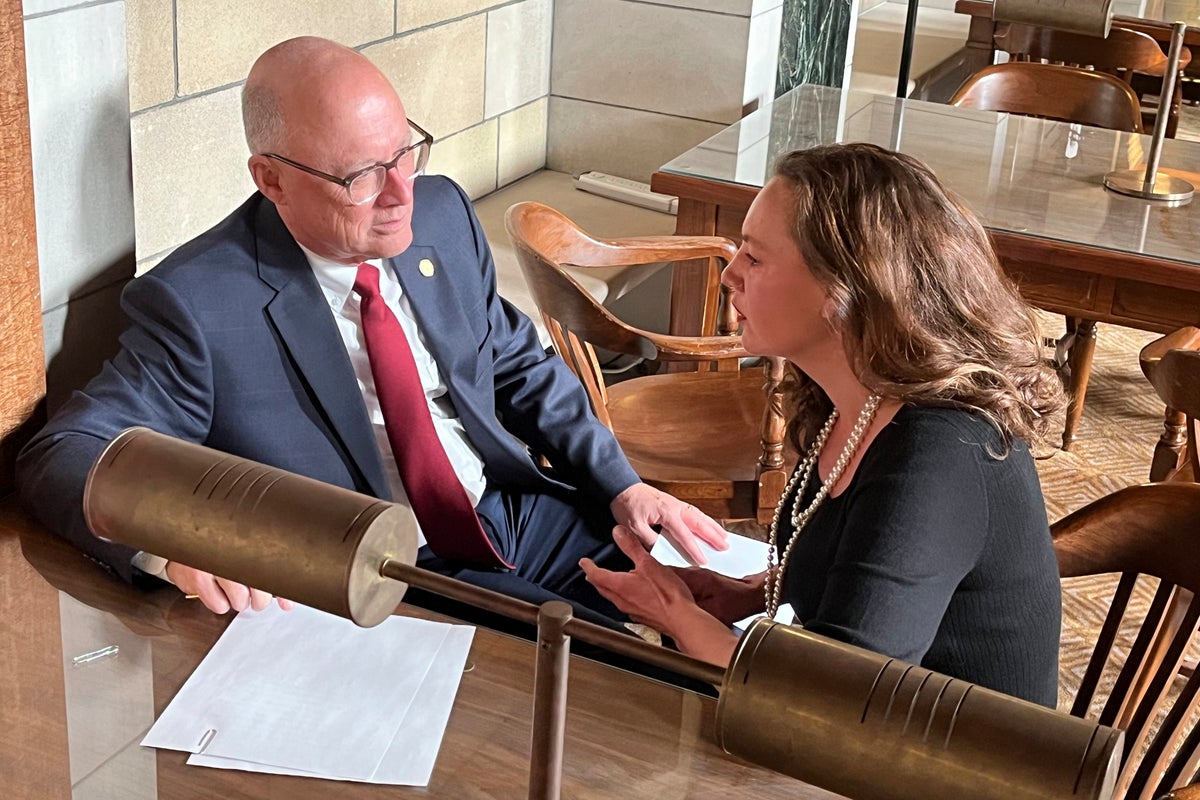
The Nebraska Legislature returned to the Capitol in Lincoln on Wednesday for the start of the short 2024 session that could end up as contentious as last year’s historically combative session, with a key lawmaker reviving her efforts to target LGBTQ+ youth.
As one of her first acts in the new 60-day session that ends in April, conservative Omaha state Sen. Kathleen Kauth followed through on her promise to prioritize a bill that would restrict transgender student participation in high school sports and limit trans students' access to bathrooms and locker rooms.
On the other end of the political spectrum, progressive Sen. Machaela Cavanaugh, of Omaha, introduced a bill to repeal a hybrid measure passed last year that included Kauth's restriction on gender-confirming care for transgender minors as well as a 12-week abortion ban.
It was conservatives’ push for those measures that led Cavanaugh and a handful of other progressive lawmakers to filibuster nearly every bill of the 2023 session — even ones they supported. Despite that effort, Republican lawmakers who dominate the officially nonpartisan Nebraska Legislature aggressively pushed conservative legislation, passing measures allowing people to carry concealed guns without a permit, a new voter ID requirement, and a measure that funnels millions in taxpayer money to scholarships for private school tuition.
Most senators are hoping to avoid a repeat of last year's session that was peppered with yelling, name-calling, crying and the refusal of some lawmakers to even speak to each other. None of that acrimony was evident Wednesday as lawmakers from both sides of the aisle hugged and greeted one another with smiles following the more than six-month break from last session.
Many lawmakers from across the political spectrum made efforts during that time to meet with one another and get to know one another better, said Sen. John Arch, speaker of the Legislature.
“We want to hit the reset button this session," Arch said.
Getting there will require a return to the congeniality of legislatures past, he said, when lawmakers often met political adversaries outside the chamber for lunch or dinner or even drinks to talk compromise.
“We have to learn how to debate controversial bills and have our have our debates, have our issues, have our fights, whatever they might be, and then move on,” he said. “Because this also this isn’t a one-year event where we have one controversial bill. We are going to have other controversial bills in the future. And so I say we kind of have to build and build muscle memory of what that feels like to take it to filibuster, to debate strongly, to take the vote up or down and then move to other work that we have to do.”
Lincoln Sen. Carol Blood, a Democrat entering the last of her eight years as a term-limited lawmaker, said she appreciated Arch's words, but is not as optimistic that lawmakers will take on those issues she says concern Nebraskans most: access to affordable child care, health care, housing and “real help with soaring taxes.”
“As a freshman senator, I was such a Pollyanna,” she said. “But last year showed me that, while previous legislative bodies may have worked together for the good of the state, times have changed. Politics has become hyper-partisan, and this body reflects that.”







